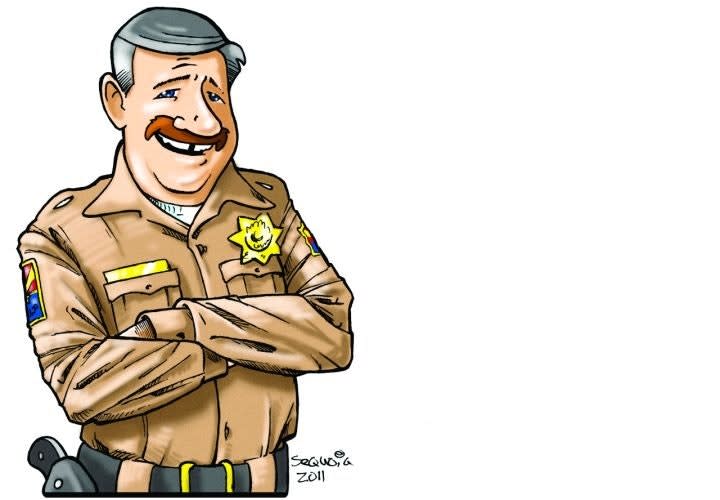I will never forget my first academy experience; it was one great adventure. Every day I was exposed to new information and skills that thrilled and worried me at the same time. Traffic stops were exciting and dangerous, domestics were filled with potential liabilities, building searches provided a ton of places from which evil could lurk and spring forth… The academy was a blast.
But one of the things I had never thought about before was how dangerous it would be to get involved in an incident off duty, and yet how important it was to be ready for it. Being a good witness was to be our "default setting;" but sometimes stuff might hit the fan and we would need to not only have our weapon available, but be qualified with it to eliminate any liability.
Liability. Dang, that word has stuck with me over the decades, as it means a whole bunch of bad things. And being ready tactically, mentally, physically, and legally to handle the liability, we were told, was extremely important.
Carrying Off Duty: Then and Now
We were instructed to pick a reliable firearm, and carry this off-duty weapon in a way that would allow us to do our repetitions with it. Now, back in the 1970s "a reliable firearm" meant a limited number of weapons—mostly of the revolver type—although some classic semi-autos were on the scene, like the 1911, the Browning 9, and some nice Colts. My first off-duty weapon was a sweet Detective Special my mom bought me, and to this day I regret ever selling that nice little six-shooter.
It was several years before I bought my first autoloader and that was a 1911—a big chunk of metal that fired a big chunk of metal—but it was sure hard to conceal, so when the weather got warm the Detective Special went back in the pants. We didn't have a slew of cool holsters back then, but in recent years the remarkable development of great firearms has also seen an explosion of concealable holsters.
So, enough about my experiences. Even with the limited weapons and carry options I had, I always carried off duty. What about you? Are you ready to defend the ones you love against deadly force when you are off duty?
Training and Preparation
I don't want to scare you, but if the threat of media and terrorists and angry citizens giving out law enforcement officers' home addresses, and the rise of extremists and crime and on and on hasn't enhanced your on-duty and off-duty awareness, then you need to turn off SportsCenter and watch some news instead.
Here are some things to think about:
1. Have you trained with your off-duty gear? No? Then get on it; do your reps and develop the confidence that you can get to it in nontraditional positions, like sitting in a theater.
2. If your agency requires you to qualify with off-duty weapons, do it. It is a liability reducer and builds your confidence with the firearm, and many agencies have a truncated qualification for off-duty weapons.
3. Teach the people you love what to do in a crisis, and how to help you in a deadly force encounter. Tell them how they should advise call-takers on a 911 call, and how to give your description and actions.
4. Explain tactics to them in a way that empowers them, and doesn't terrorize them. What are cover, concealment, and suspicious activity? Why do we sit with our back to the wall and "look" at people so intently? Explain these, and any other important things you can think of.
A guy told me he was dating a lady who didn't like guns, and he had to hide it from her when he carried off duty. He asked me what he should do. "Find someone else," I said. "If not, then explain to her that you are responsible to protect the innocent everywhere you go. Your life is one you were called to, not hired for, and if she wants to share your life she should share your mission." I think he found someone else.
A Serious Responsibility
This is serious. Never has it been more important to protect those around us, using the entire spectrum of force—up to and including deadly force. And never has there been a greater selection of weapons and carrying devices to choose from. We now have ammo designed to provide greater stopping power, usable in firearms designed to improve shooter proficiency; heck, this alone makes carrying off duty so compelling that it shouldn't even require an article. Even retired officers can carry now by federal law. How cool is that?
Get prepared, and get the people you love prepared. Stay safe.
Dave Smith is an internationally recognized law enforcement trainer and is the creator of "JD Buck Savage." You can follow Buck on Twitter at @thebucksavage.













